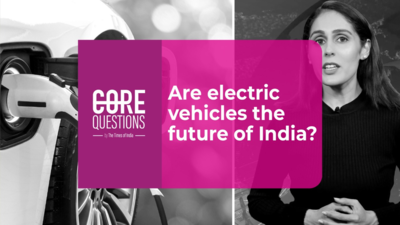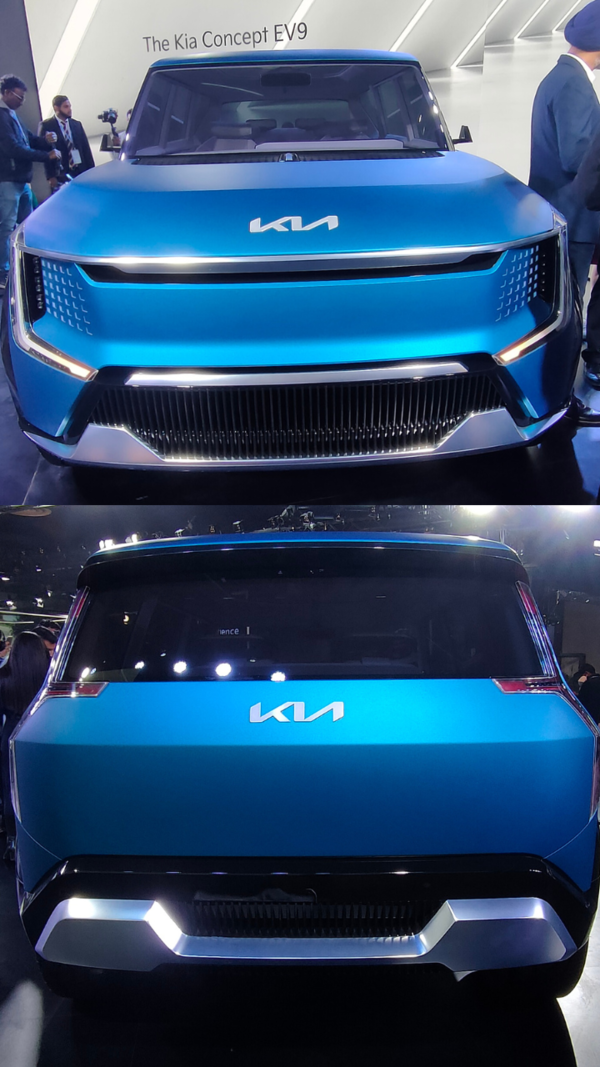Top Searches
Rise of Electric Vehicles in India: Is it the future of transportation?

India broke into the top three largest car markets in the world in 2022 and continues to grow. With over 40 crore (400 million) people in need of transport solutions, the Government of India (GoI) is pushing for the adoption of electric vehicles (EVs) to reduce fuel consumption and improve the environment.
To achieve this, India is part of a handful of countries that support the global EV30@30campaign. This drive aims for at least 30% of vehicle sales to be electric by 2030.
As part of this push, the GoI has signed a Memorandum of Understanding (MoU) with Australia in 2022 to source critical minerals. This MoU includes a $5.8M USD investment for a three-year India-Australia Critical Minerals Investment Partnership.
Critical minerals, such as copper, lithium, nickel, and cobalt, are essential to produce EVs as well as modern technologies including wind turbines, green technologies, smartphones, laptops, and military equipment.
Without these critical minerals, massive global supply chain disruptions can occur.
In fact, the global EV30@30 campaign, which India is part of, aims for 30% of vehicle sales to be electric by 2030. Prime Minister Narendra Modi has also advocated for five elements for climate change in India, known as ‘Panchamrita,’ at the 2021 COP26 United Nations Climate Change Conference.
‘Panchamrita’ promises include:
1. Increasing non-fossil energy capacity to 500 gigawatts by 2030
2. Providing 50% of India's overall energy needs through renewable energy
3. Reducing carbon emissions by 1 Billion tonnes by 2030
4. Reducing carbon intensity by 45% by 2030
5. Achieving net zero by 2070
Under PM Modi's leadership, the government has taken several steps to develop and promote the EV ecosystem in India. The Faster Adoption and Manufacturing of Electric Vehicles (FAME II) scheme has been remodelled for consumers, the production-linked incentive (PLI) scheme for Advanced Chemistry Cell (ACC) has been revamped for suppliers, and a PLI scheme for Auto and Automotive Components valued at 26,000 crore rupees has been launched for manufacturers of electric vehicles.
The government's push for EVs has already yielded positive results. According to the Minister of Road Transport and Highways, Nitin Gadkari: “two-wheeler EVs rose by 422%, 3 wheelers by 75%, and 4 wheelers by 230% between 2019 and 2021. The number of electric buses also increased by over 1200% during this period.”
To accommodate the growing number of EVs, the Ministry of Power has prescribed at least one charging station to be present every 3 km and at every 25 km on both sides of highways in India.
A push for more EVs also means that this will likely evolve into a new, major industry in India which brings about job creation and boosts the GDP.
Additionally, levels of per capita income are steadily on the rise and the Indian middle class have more spending money. Therefore, there is more demand for electronics like phones, laptops and power banks; all of which require batteries. To add, a new sector all-together has opened; the manufacturing of advanced batteries. It is projected by multiple subject-matter experts to be one of India’s largest economic opportunities of the 21st century.
All of this sounds great and EVs seem like a no brainer. But then why aren’t we all going for electric cars? Looking at the big picture, there are some major concerns with EVs. For starters, while driving an EV may be more sustainable than a petrol or diesel alternative, more greenhouse gasses are emitted while manufacturing them. Also, as they are only as green as their power sources, some electric models may be less environmentally friendly than petrol counterparts. For consumers, EVs are also considerably more expensive to buy, and one cannot driver as far in an electric car as compared to a petrol/diesel automobile.
For the good or bad, India is establishing itself as a global leader in EV manufacturing. Electric vehicles are expected to accommodate higher renewable energy penetration while strengthening and stabilizing grid operation. Additionally, India is in need of a transportation revolution. Adding more cars running on imported fuel not only clutters already over-congested cities but also increases pollution levels and India’s dependence on foreign oil.
Though EVs do come with some things to consider, with an increasing demand for transport solutions, the benefits from adoption of EVs on a large scale can be a practical way forward.
To achieve this, India is part of a handful of countries that support the global EV30@30campaign. This drive aims for at least 30% of vehicle sales to be electric by 2030.
As part of this push, the GoI has signed a Memorandum of Understanding (MoU) with Australia in 2022 to source critical minerals. This MoU includes a $5.8M USD investment for a three-year India-Australia Critical Minerals Investment Partnership.
The future of electric vehicles in India
Critical minerals, such as copper, lithium, nickel, and cobalt, are essential to produce EVs as well as modern technologies including wind turbines, green technologies, smartphones, laptops, and military equipment.
Without these critical minerals, massive global supply chain disruptions can occur.
In fact, the global EV30@30 campaign, which India is part of, aims for 30% of vehicle sales to be electric by 2030. Prime Minister Narendra Modi has also advocated for five elements for climate change in India, known as ‘Panchamrita,’ at the 2021 COP26 United Nations Climate Change Conference.
‘Panchamrita’ promises include:
1. Increasing non-fossil energy capacity to 500 gigawatts by 2030
2. Providing 50% of India's overall energy needs through renewable energy
3. Reducing carbon emissions by 1 Billion tonnes by 2030
4. Reducing carbon intensity by 45% by 2030
5. Achieving net zero by 2070
Under PM Modi's leadership, the government has taken several steps to develop and promote the EV ecosystem in India. The Faster Adoption and Manufacturing of Electric Vehicles (FAME II) scheme has been remodelled for consumers, the production-linked incentive (PLI) scheme for Advanced Chemistry Cell (ACC) has been revamped for suppliers, and a PLI scheme for Auto and Automotive Components valued at 26,000 crore rupees has been launched for manufacturers of electric vehicles.
The government's push for EVs has already yielded positive results. According to the Minister of Road Transport and Highways, Nitin Gadkari: “two-wheeler EVs rose by 422%, 3 wheelers by 75%, and 4 wheelers by 230% between 2019 and 2021. The number of electric buses also increased by over 1200% during this period.”
To accommodate the growing number of EVs, the Ministry of Power has prescribed at least one charging station to be present every 3 km and at every 25 km on both sides of highways in India.
A push for more EVs also means that this will likely evolve into a new, major industry in India which brings about job creation and boosts the GDP.
Additionally, levels of per capita income are steadily on the rise and the Indian middle class have more spending money. Therefore, there is more demand for electronics like phones, laptops and power banks; all of which require batteries. To add, a new sector all-together has opened; the manufacturing of advanced batteries. It is projected by multiple subject-matter experts to be one of India’s largest economic opportunities of the 21st century.
All of this sounds great and EVs seem like a no brainer. But then why aren’t we all going for electric cars? Looking at the big picture, there are some major concerns with EVs. For starters, while driving an EV may be more sustainable than a petrol or diesel alternative, more greenhouse gasses are emitted while manufacturing them. Also, as they are only as green as their power sources, some electric models may be less environmentally friendly than petrol counterparts. For consumers, EVs are also considerably more expensive to buy, and one cannot driver as far in an electric car as compared to a petrol/diesel automobile.
For the good or bad, India is establishing itself as a global leader in EV manufacturing. Electric vehicles are expected to accommodate higher renewable energy penetration while strengthening and stabilizing grid operation. Additionally, India is in need of a transportation revolution. Adding more cars running on imported fuel not only clutters already over-congested cities but also increases pollution levels and India’s dependence on foreign oil.
Though EVs do come with some things to consider, with an increasing demand for transport solutions, the benefits from adoption of EVs on a large scale can be a practical way forward.
Start a Conversation
FOLLOW US ON SOCIAL MEDIA
FacebookTwitterInstagramKOO APPYOUTUBE










